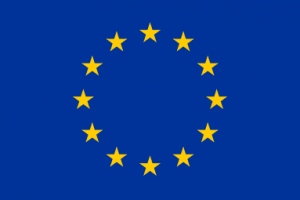FEDORA researches futures thinking in science education. Why, how and with whom should we build these new views for the needed transformation in schools, in informal and formal contexts. The research published during the execution of the FEDORA project is shown here.
Barelli, E., & Levrini, O. (2022). Computational simulations at the interface of physics and society: a teaching-learning module for high school students.
Il Nuovo Cimento C, 6.
In this paper, we present the principles at the basis of the design of a teaching-learning module on simulations of complex systems and implemented in a course organized by the Department of Physics and Astronomy “A. Righi” of the University of Bologna for university orientation.
Barelli, E. (2022). Imagining the school of the future through computational simulations: Scenarios’ sustainability and agency as keywords.
Frontiers in Education, 7.
In this paper, we present a teaching-learning module targeted to upper high-school students on simulations of complex systems.
Laherto, A. (2021). Kestävä tulevaisuus täytyy ensin osata kuvitella.
Ympäristökasvatus Teema 2021, pp. 24-25.
Rasa, T., & Laherto, A. (2022). Young people’s technological images of the future: implications for science and technology education.
European Journal of Futures Research, 10(1), 1-15.
Laherto, A., & Rasa, T. (2022). Facilitating transformative science education through futures thinking.
On the Horizon, 30(2), 96-103.
Erduran, S. & Ioannidou, O. (2021). Managing the future: How can STEM education help?
Diàlegs , June, No. 2, pp.60-63.
Erduran, S. (2021). Boosting scientific knowledge at a time of Covid-19 scepticism.
Crossword Magazine, p.6, St Cross College, Oxford, UK.
Ioannidou, O., & Erduran, S. (2022). Policymakers' views of future-oriented skills in science education: Perspectives from England, Italy, Finland, and Lithuania.
Frontiers in Education.
D’Orto, E. (2022). Mocku for change: An explorative study on the use of “mockumentary” as a new language for Climate Change education.
Master Degree dissertation, University of Bologna, Supervisor: Levrini O., co-supervisor: Giulia Tasquier.
Laherto, A., Levrini, O., & Erduran, S. (2023). Editorial: Future-oriented science education for agency and sustainable development.
Frontiers in Education, 8:1155507.
Rasa, T., Lavonen, J., & Laherto, A. (2023). Agency and Transformative Potential of Technology in Students’ Images of the Future: Futures Thinking as Critical Scientific Literacy.
Science & Education, 1-25.
Laherto, A. & Rasa, T. (2022). Analyzing Students' Writings on the Future: Types of Agentic Orientations. Paper presented in 2022 annual meeting of the American Educational Research Association (AERA).
AERA Online Paper Repository.
Satanassi, S. (2023). Investigating the learning potential of the Second Quantum Revolution: development of an approach for secondary school students.
PhD dissertation, University of Bologna, Supervisor: Levrini O.
De Zuani Cassina, F., D'Orto, E., Fantini, P., Tasquier, G., Levrini, O. (2023). Enhancing relevance and authenticity in school science: design of two prototypical activities within the FEDORA project.
Frontiers in Education.
Molinari, I. (2023). Analysis of an interdisciplinary approach for teaching artificial intelligence in secondary schools thorough co-planning and co-teaching methodologies: a proposal for the open-schooling model of the FEDORA project.
Master Degree dissertation, University of Bologna, Supervisor: Levrini O., co-supervisor: Satanassi, S., Barelli, E.
Maranzano, M. (2023). Interdisciplinary analysis of the course “Paradoxes of Space and Time” between Physics, Mathematics and Philosophy.
Master Degree dissertation, University of Bologna, Supervisor: Levrini O., Co-supervisor: Cattabriga, A., Miani, L.
